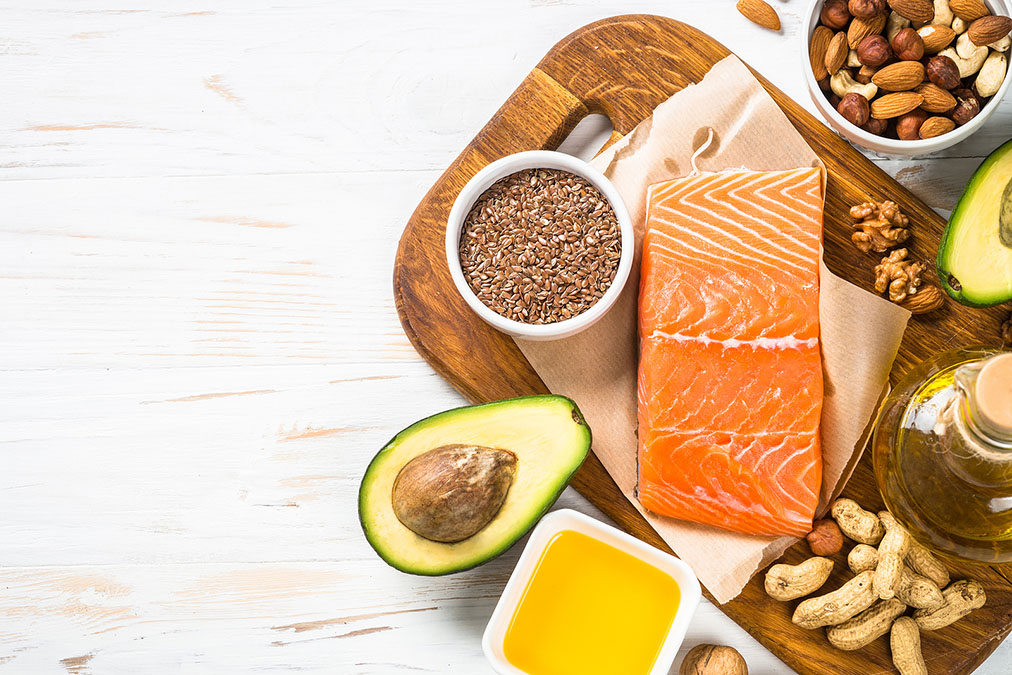 Research into omega-3 fatty acids and heart disease has been a bit confusing.
Research into omega-3 fatty acids and heart disease has been a bit confusing.
Studies seem to show that these fats can reduce our risk of heart disease, but they also seem to show that omega-3 fats raise low-density lipoprotein (LDL) cholesterol, usually called “bad cholesterol.”
LDL cholesterol is called bad cholesterol because it is the type that clogs our arteries and causes atherosclerosis.
So how can more LDL be good?
The answer lies in a new study published in the latest Journal of the American Heart Association.
Researchers at the Universitat Rovira i Virgili and Harvard Medical School hypothesized that the answer lies in the type of LDL cholesterol that is increased by omega-3 fats.
They collected data on 26,034 people from the Brigham and Women’s Hospital Women’s Health Study. The data covered their eating habits, their consumption of fish and other sources of omega-3s, their medication use, their physical activity levels, their smoking status, and a range of other information.
Most importantly, it included the results of nuclear magnetic resonance scans on the participants’ blood that could characterize their blood components in detail.
They divided omega-3 intake into total omega-3s, fish, and the omega-3 subtypes called eicosapentaenoic, docosahexaenoic, and alpha-linolenic acids.
Alpha-linolenic acids occur in plants such as flaxseed, walnuts, and chia. The other two subtypes are obtained from fish and, if you are vegetarian, from edible algae.
Those who consumed the most fish and total omega-3s had significantly lower levels of triglycerides (fats in the blood) and higher levels of large VLDL (very-low-density lipoprotein) particles.
Those who consumed the most eicosapentaenoic and docosahexaenoic acids in the form of fish had the highest total and LDL cholesterol, but their cholesterol particles were larger than those who consumed the least of these fatty acids.
Total omega-3 intake and docosahexaenoic acid and alpha-linolenic acid intake also increased the participant’s HDL cholesterol (high-density lipoprotein; the so-called “good cholesterol”) and the size of their HDL particles.
These are important findings since they confirm that it is not our cholesterol levels but rather the exact nature of our cholesterol particles that matters in the origins of heart disease.
To be more precise, small cholesterol particles cause atherosclerosis, not large ones, and since omega-3 fats promote large particles at the expense of small ones, consuming omega-3s is a good way to protect against atherosclerosis.
If your blood pressure is out of control, discover how three easy exercises drop blood pressure below 120 over 80, starting today…

 Overcoming IBD
Overcoming IBD Multiple Sclerosis
Multiple Sclerosis Banishing Bronchitis
Banishing Bronchitis Gum Disease Gone
Gum Disease Gone Overcoming Onychomycosis
Overcoming Onychomycosis Neuropathy No More
Neuropathy No More The Prostate Protocol
The Prostate Protocol Brain Booster
Brain Booster
 Ironbound
Ironbound
 Solution for Shingles
Solution for Shingles
 The Bone Density Solution
The Bone Density Solution
 The Ultimate Healing Protocol
The Ultimate Healing Protocol
 The Parkinson's Protocol
The Parkinson's Protocol
 The Chronic Kidney Disease Solution
The Chronic Kidney Disease Solution
 Overthrowing Anxiety
Overthrowing Anxiety The Fatty Liver Solution
The Fatty Liver Solution The Hypothyroidism Solution
The Hypothyroidism Solution
 The End of Gout
The End of Gout The Blood Pressure Program
The Blood Pressure Program
 The Oxigized Cholesterol Strategy
The Oxigized Cholesterol Strategy
 Stop Snoring And Sleep Apnea Program
Stop Snoring And Sleep Apnea Program
 The Arthritis Strategy
The Arthritis Strategy The Vertigo & Dizziness Program
The Vertigo & Dizziness Program The 3-Step Diabetes Strategy
The 3-Step Diabetes Strategy Hemorrhoids Healing Protocol
Hemorrhoids Healing Protocol The Erectile Dysfunction Master
The Erectile Dysfunction Master Weight Loss Breeze
Weight Loss Breeze The IBS Program
The IBS Program The Insomnia Program
The Insomnia Program The Migraine and Headache Program
The Migraine and Headache Program The Neck Pain Solution
The Neck Pain Solution The Menopause Solution
The Menopause Solution The Ejaculation Master
The Ejaculation Master The TMJ Solution
The TMJ Solution The Acid Reflux Solution
The Acid Reflux Solution The Fibromyalgia Solution
The Fibromyalgia Solution The Psoriasis Strategy
The Psoriasis Strategy